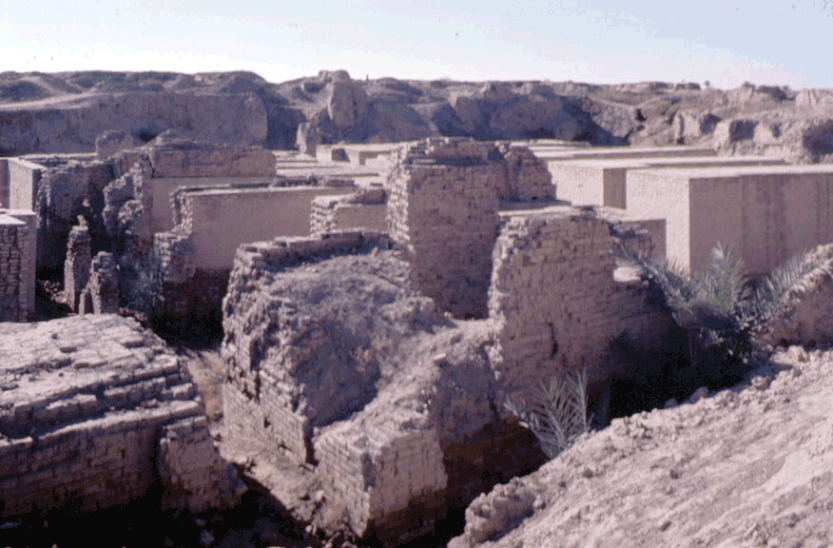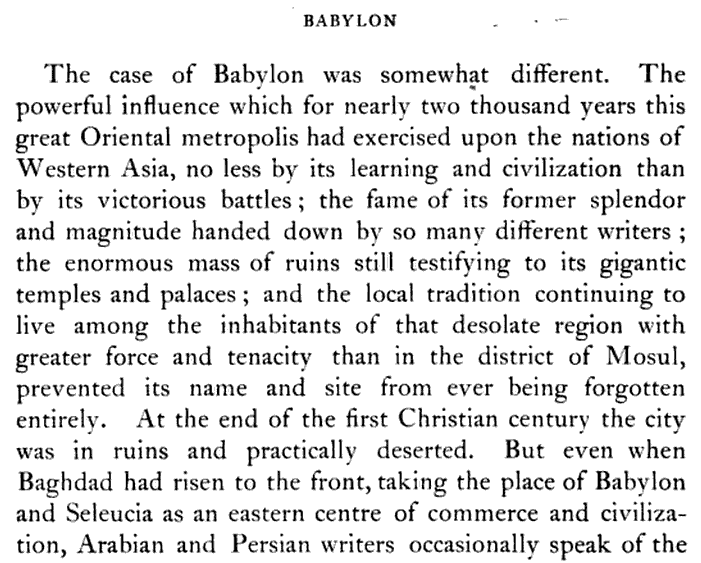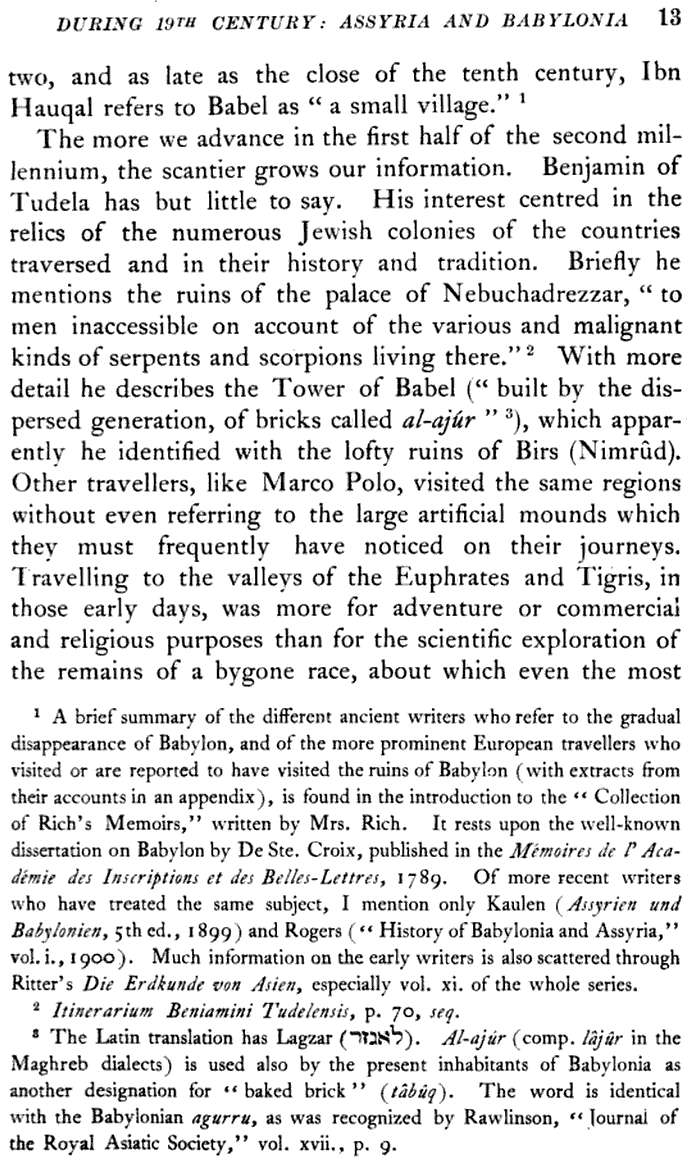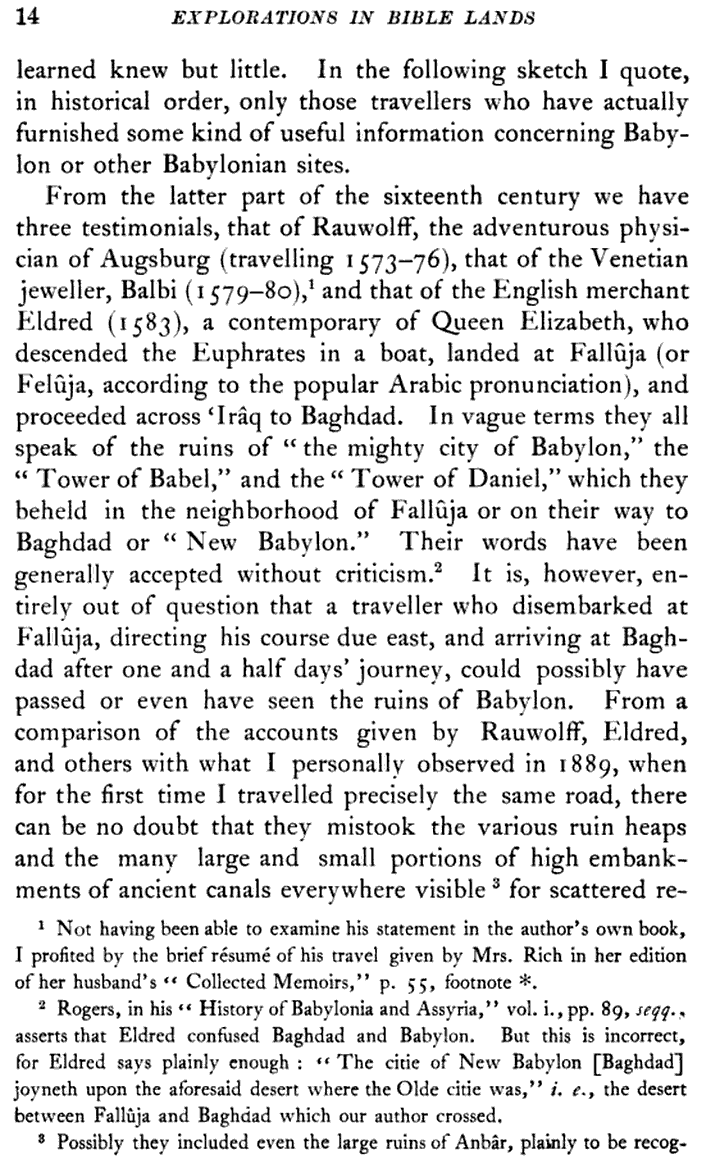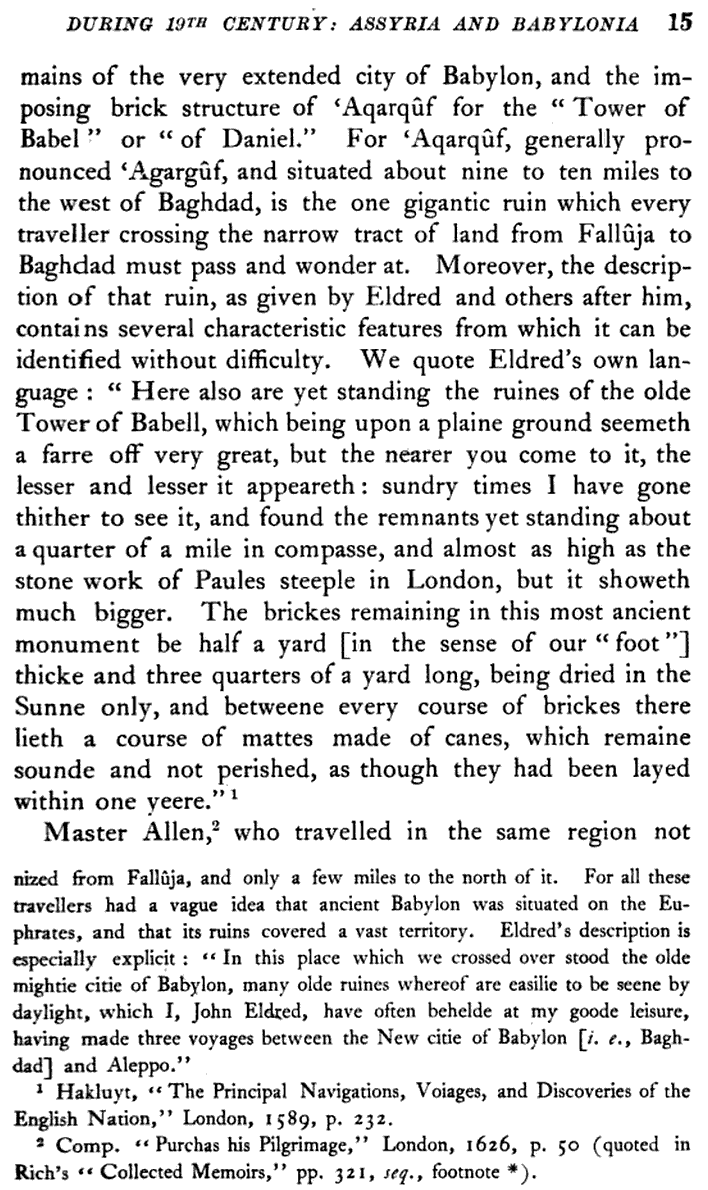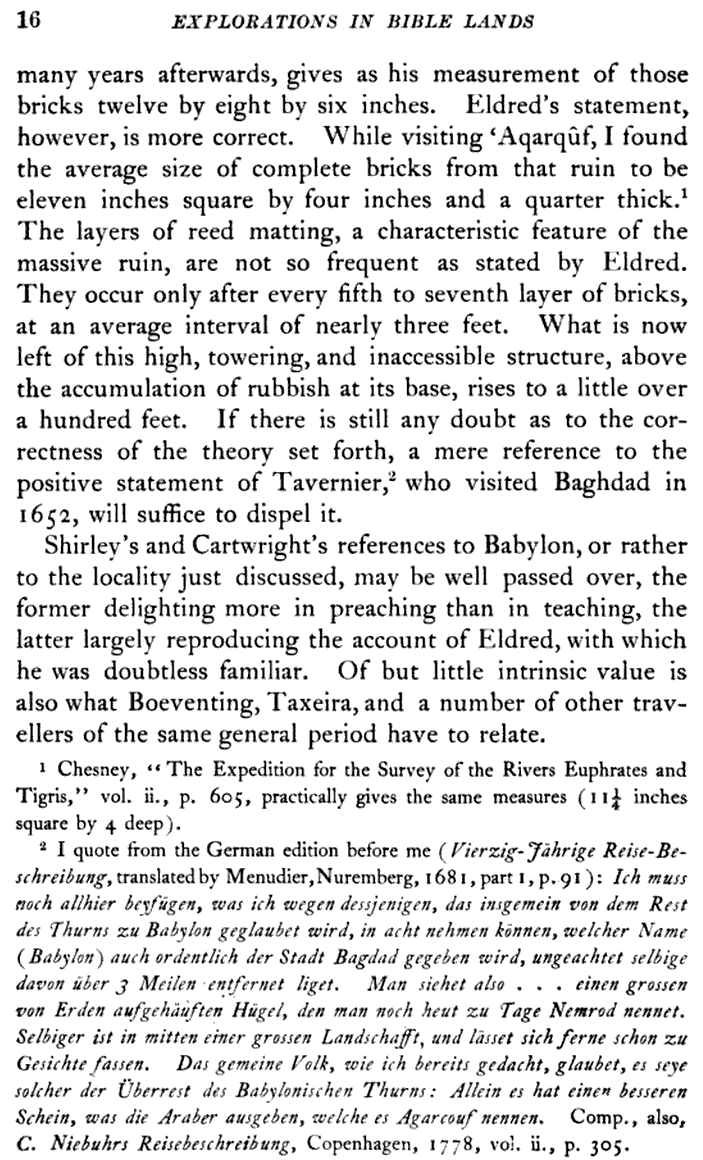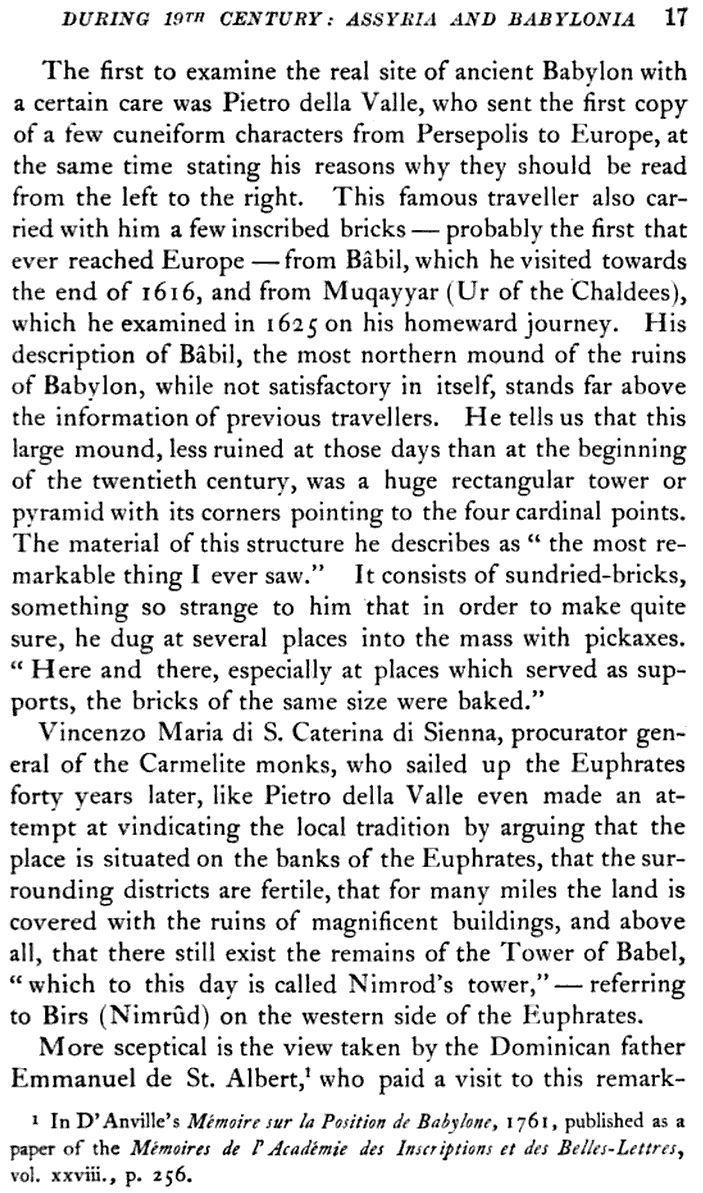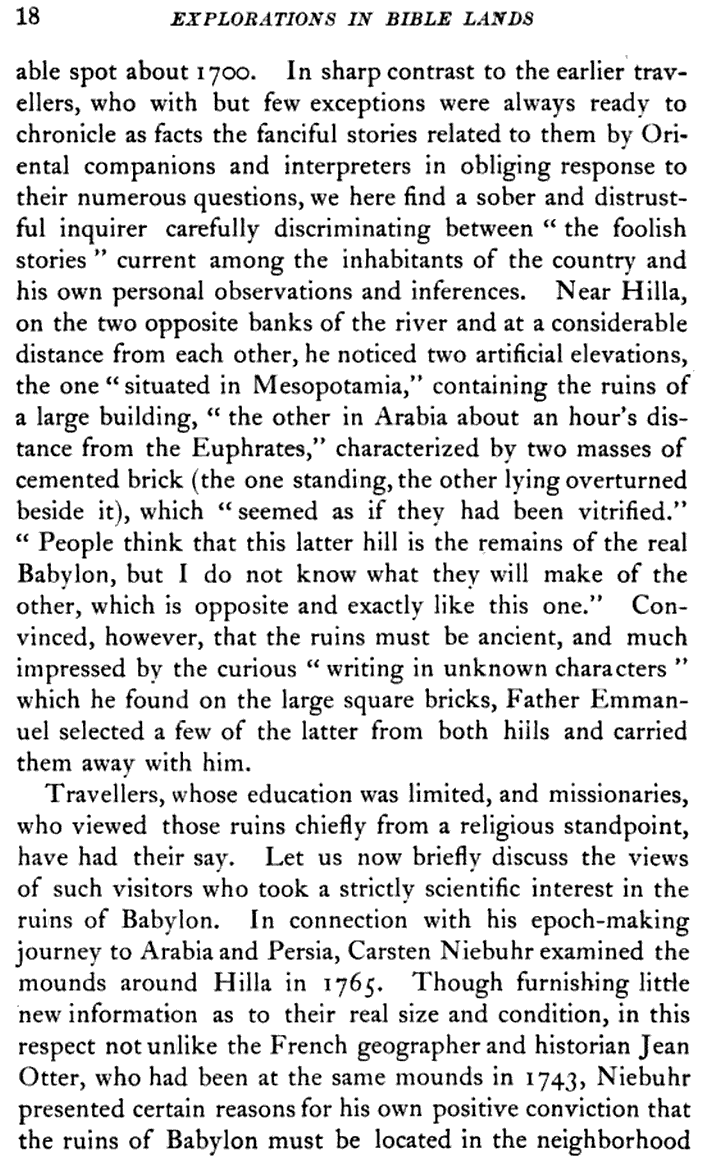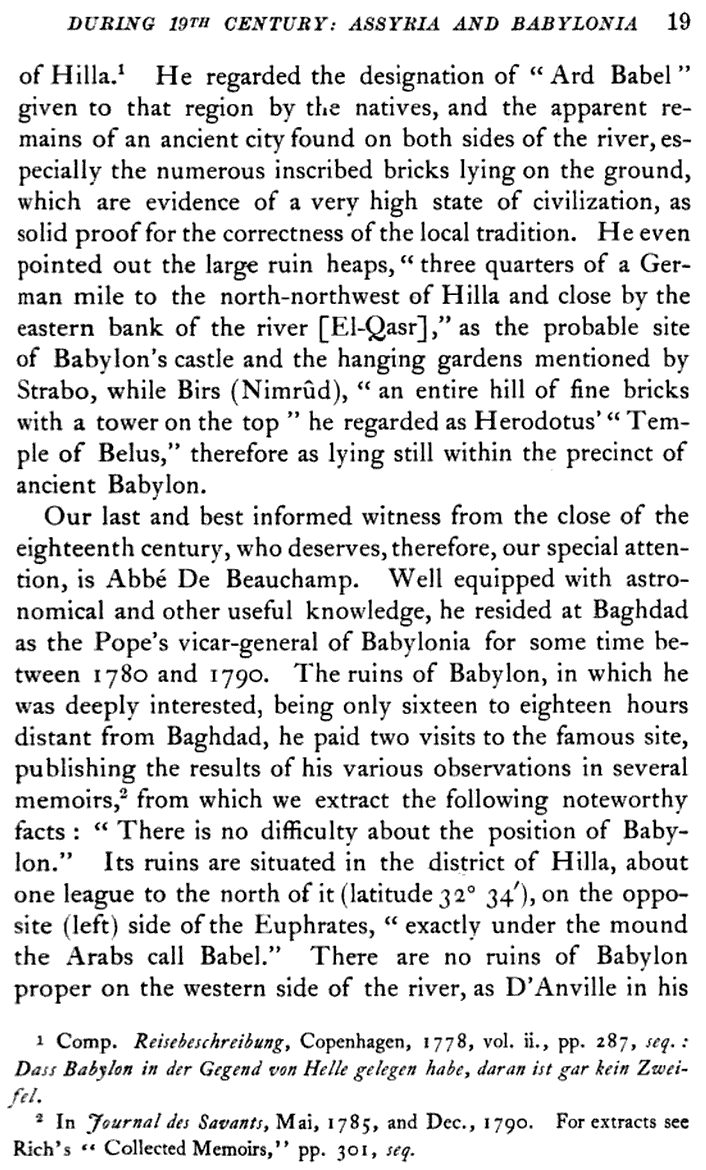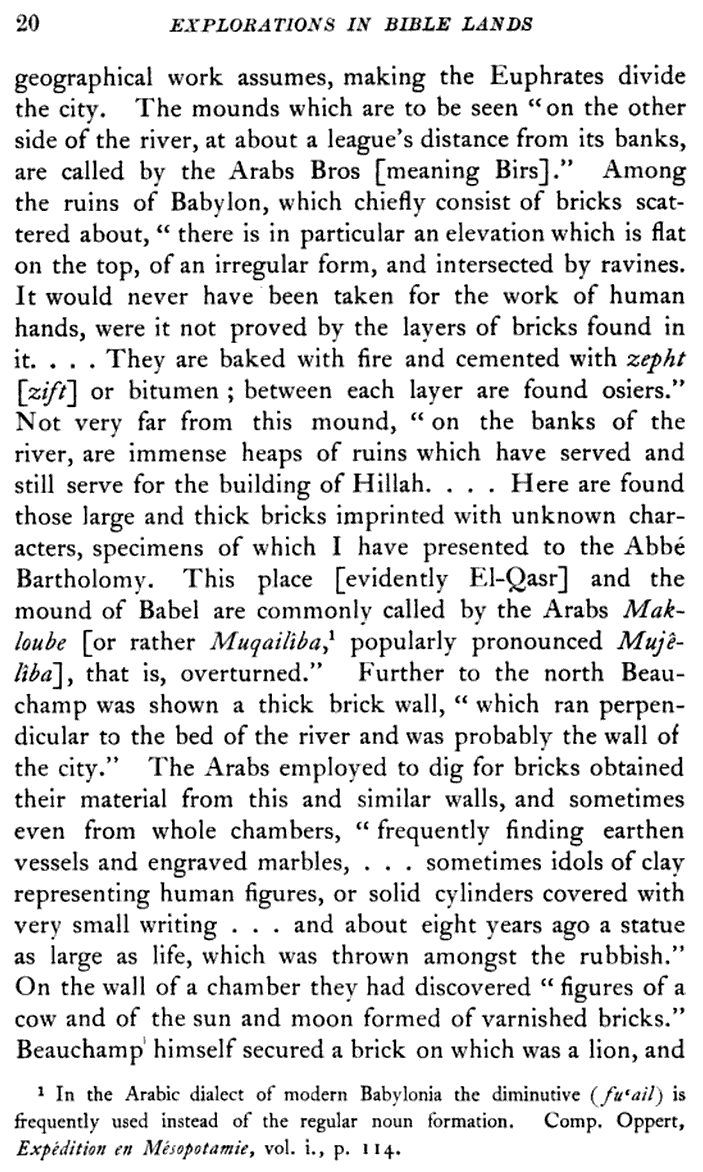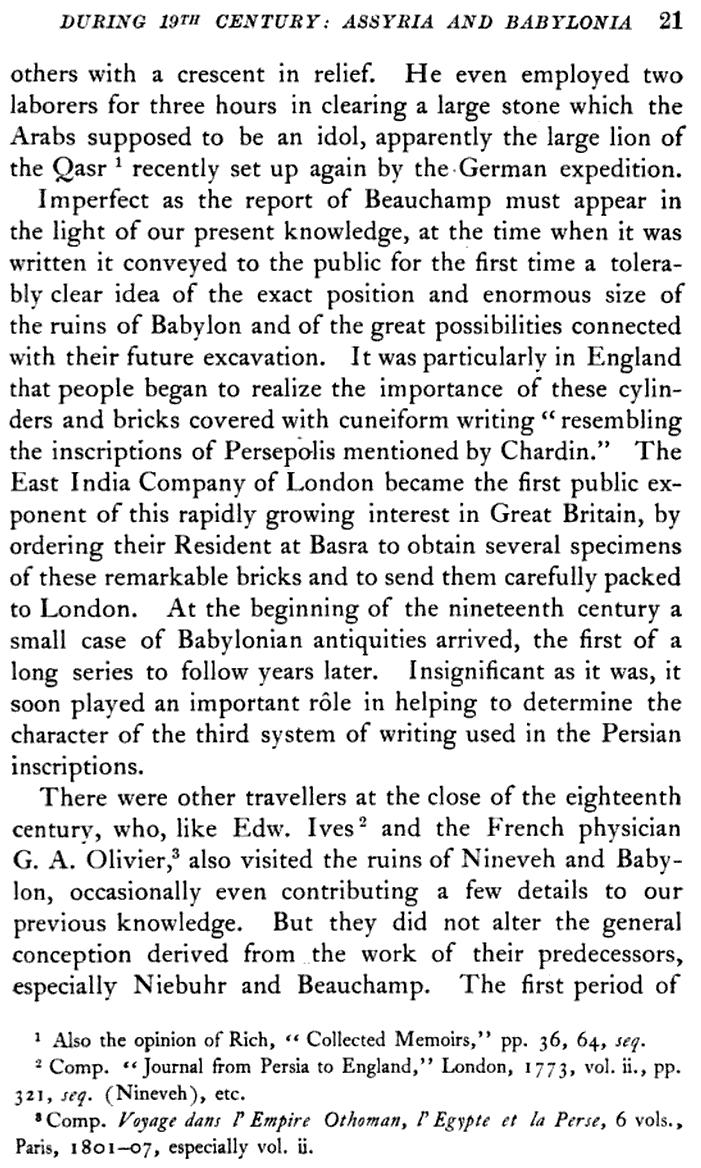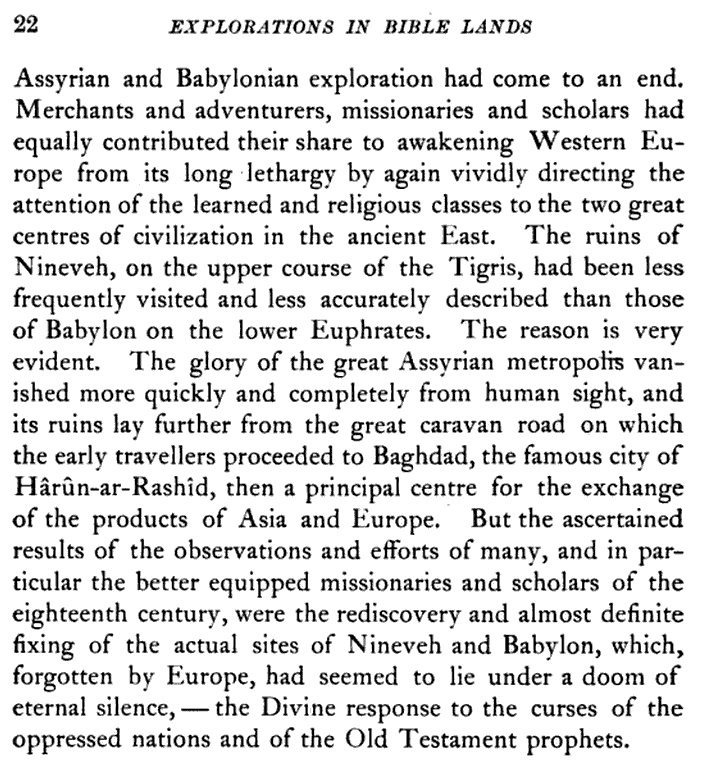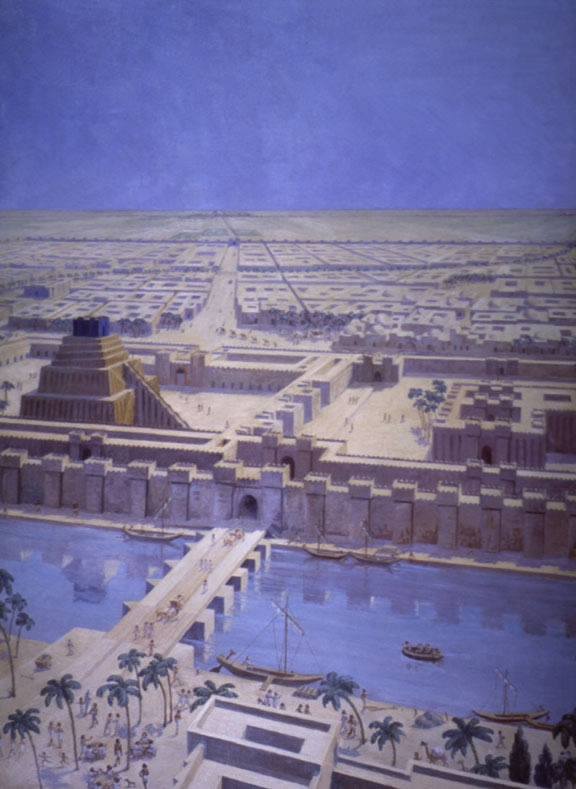|
Other Archaeological Sites / The Neolithic of the Levant (500 Page Book Online) Ancient Babylon -- Babel -- Babil
Read: Excavations at Babylon -- L. W. King
ProofRead and Updated July 3rd 2019 The capital of the Old Kingdom of Babylonia situated on the Euphrates River south of Baghdad in modern Iraq. Thc city was occupied from the 3rd millennium BC but became important early in the 2nd millennium under the kings of the First Dynasty of Babylon. The sixth king of this dynasty was Hammurabi (1792-1750 BC) who made Babylon the capital of a vast empire and is best remembered for his code of laws. This period was brought to an end by the Hittites when in 1595 BC Babylon is sacked by King Mursili I. The city then had a mixed history until the Neo-Babylonian Period of the 7th-6th centuries BC. It once again achieved pre-eminence when Nebuchadnezzar II (605-562 BC) extended the Chaldean Empire over most of Western Asia. Babylon fell to Cyrus the Great of Persia in 539 BC; occcupation continued in the Achaemenid Period. The city was taken by Alexander the Great in 331 BC. Babylon subsequently declined and was eventually abandoned after the Muslim conquest of AD 641 ...
Pages 12-22 in The Excavations in Assyria and Babylonia
Ibn Hawqal / Read the Introduction to Narrative of a Journey to the Site of Babylon in 1811
|
